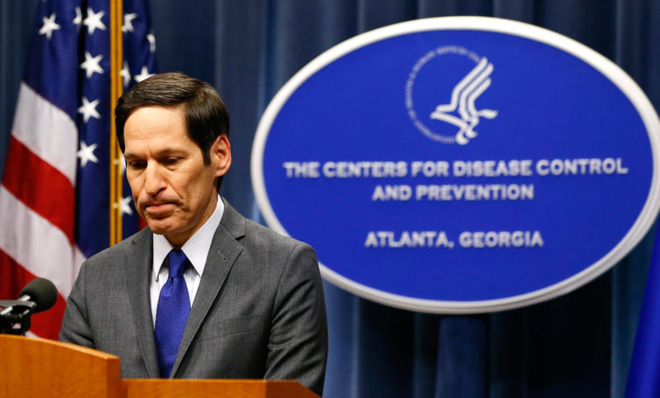When the experts screw up
The people who run the CDC, the Secret Service, hospitals, and other important organizations are human. Which means they make terrible mistakes.


A free daily email with the biggest news stories of the day – and the best features from TheWeek.com
You are now subscribed
Your newsletter sign-up was successful
It is comforting — and perhaps even necessary — to believe that the people in charge are far smarter and less fallible than the rest of us. But every now and then, we are reminded that the sublime competency of elected officials, religious leaders, regulators, business leaders, doctors, and scientists is an illusion. And it always comes as a shock. This week, we learned that two health-care workers caring for an Ebola patient at a Dallas hospital were infected despite elaborate precautions, and may have infected others. This week also brings the news that when an Air France flight flew into a violent thunderstorm, stalled, and crashed in 2009, killing all 228 on board, the experienced pilot had left the cockpit to take a nap because he'd stayed up the previous night fooling around with his mistress. And how about the Secret Service? Until a few weeks ago, nobody would believe a man with a knife could climb over the White House fence, burst through the open front door, and run through the building, looking for the president.
If you like, you can blame these displays of gross ineptitude on the Obama administration, Republican budget cuts, the CDC, the CIA, or the dark conspiracy of your choice. But the reality is that human folly is a constant. (See: 9/11, Iraq, the 2008 financial crash, ad infinitum.) Most of the people we entrust with great responsibility are, in fact, highly competent and dedicated, and most institutions work fairly well most of the time. But life is complicated, and even smart people screw up — often. "To err is human," Alexander Pope observed three centuries ago. How come we're so surprised every time he's proven right?
A free daily email with the biggest news stories of the day – and the best features from TheWeek.com
The Week
Escape your echo chamber. Get the facts behind the news, plus analysis from multiple perspectives.

Sign up for The Week's Free Newsletters
From our morning news briefing to a weekly Good News Newsletter, get the best of The Week delivered directly to your inbox.
From our morning news briefing to a weekly Good News Newsletter, get the best of The Week delivered directly to your inbox.
William Falk is editor-in-chief of The Week, and has held that role since the magazine's first issue in 2001. He has previously been a reporter, columnist, and editor at the Gannett Westchester Newspapers and at Newsday, where he was part of two reporting teams that won Pulitzer Prizes.
-
 Gisèle Pelicot’s ‘extraordinarily courageous’ memoir is a ‘compelling’ read
Gisèle Pelicot’s ‘extraordinarily courageous’ memoir is a ‘compelling’ readIn the Spotlight A Hymn to Life is a ‘riveting’ account of Pelicot’s ordeal and a ‘rousing feminist manifesto’
-
 The EU’s war on fast fashion
The EU’s war on fast fashionIn the Spotlight Bloc launches investigation into Shein over sale of weapons and ‘childlike’ sex dolls, alongside efforts to tax e-commerce giants and combat textile waste
-
 How to Get to Heaven from Belfast: a ‘highly entertaining ride’
How to Get to Heaven from Belfast: a ‘highly entertaining ride’The Week Recommends Mystery-comedy from the creator of Derry Girls should be ‘your new binge-watch’
